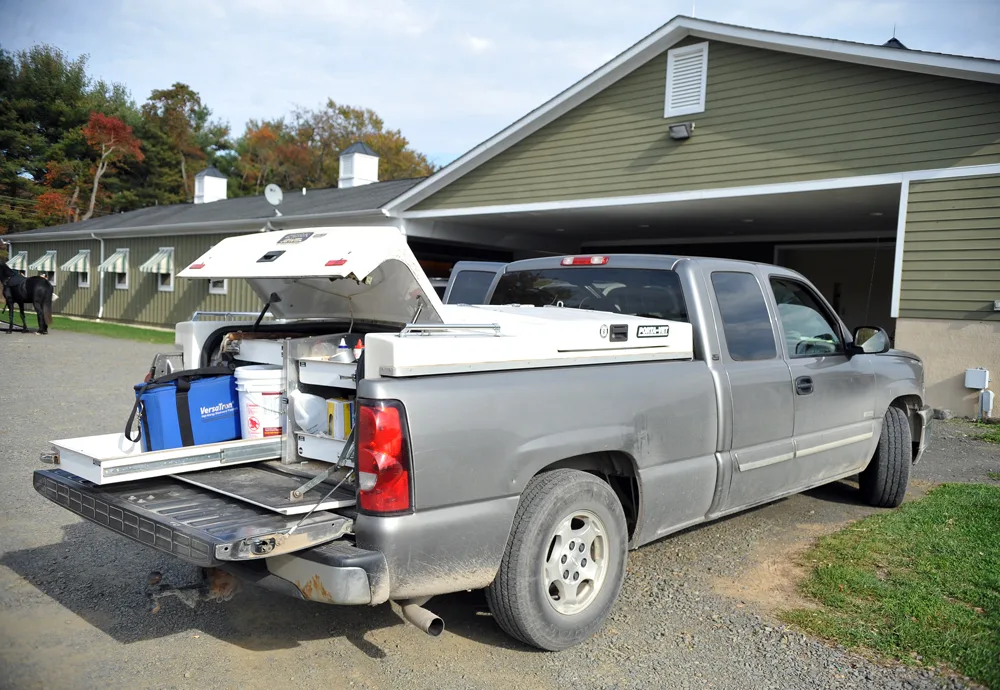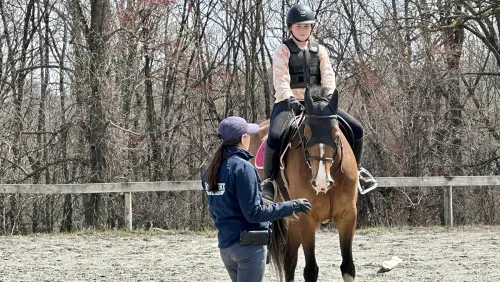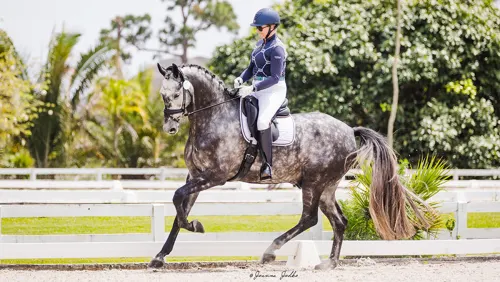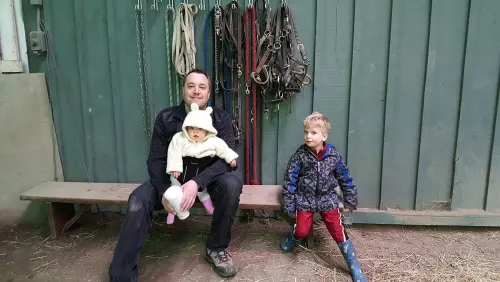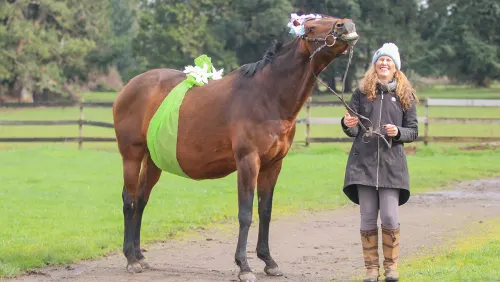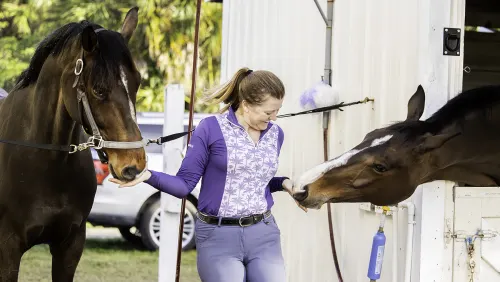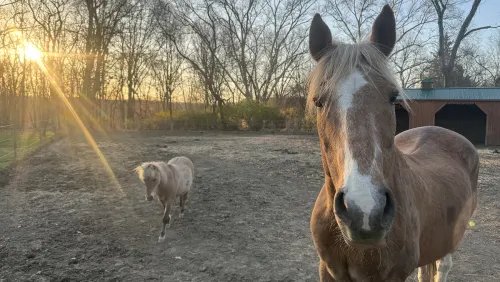Back when this baby-to-be was a bit smaller, I found myself in the doctor’s office discussing options for early screening and diagnostic tests. As a “woman of advanced maternal age,” (I’m 35), there are some increased risks. So my regular ob/gyn packed me off to a specialist to have a routine but slightly scary conversation about what I did and did not want to find out about my baby.
As we discussed non-invasive blood screening vs. more invasive diagnostic tests, I told my doctor that I’m very much pro-science, and I wanted as much information as possible, so I could make informed decisions.
“Are you a vet?” she asked, sounding a bit surprised.
I was slightly taken aback by her question, although I’d told her my professional life involved horses. It just didn’t occur to me that my attitude would be unusual.
But the more I thought about it, the more I realized there are some huge differences in attitude between animal medicine and human medicine.
ADVERTISEMENT
As the person in charge of every aspect of the care of two equines, I’m all too familiar with making difficult medical decisions, starting with: Do I call my veterinarian, or do I try treating at home first?
Once I’ve actually committed to consulting with a professional, the next choice is inevitably: How much do I want to spend?
Horses can’t tell you where it hurts or why—wouldn’t it be amazing if they could say, “Oh I just played hard in the field last night,” vs. “My leg hasn’t really felt right since we landed funny off that big oxer the last time we jumped”?—so making decisions about their health care almost always involves some informed guesswork.
I have one horse who often leaves a part of his meal uneaten, while I have another who gobbles down every scrap. One of my horses will hold up his leg and declare that he’s dying if there’s a small scratch on it. The other will cheerfully try to run away with me, even if he’s so lame he can barely walk.
So, I assess their health care situation based on my own experience and knowledge combined with that of my veterinarian, and then I choose how far I want to go with testing and diagnostics.
ADVERTISEMENT
I think most veterinarians are accustomed to this process and sensitive to doing the right thing for the client as well as the horse. While they’d probably prefer to make their own diagnosis, they’ll teach people how to give IV shots for emergencies and dispense certain medications to keep around “just in case,” trusting they’ll be used appropriately. My vet has even suggested I just send a cell phone photo, so he can determine whether he needs to come out or not.
But it’s possible medical doctors are more accustomed to directing their patient’s care, rather than advising and letting the patient make the decision. Just as my doctor was surprised when I wanted to know the science behind what she was suggesting, I’ve been startled and sometimes upset by how little input I’m expected to provide when it comes to my own care. I’m not arguing with the doctor when I ask why I need a certain test or what the benefits are of performing it vs. the risks. I’m just gathering information, so I can make my own informed decision about what’s best for me.
To my doctor’s credit, once she understood where I was coming from, she became a fantastic resource, soothing my worries, explaining all the options, and generally providing an excellent level of support and guidance without pushing me in one direction or another. The really good news? All my tests came back absolutely normal.
But the experience led me to wonder if maybe human doctors should take a leaf out of the veterinarian’s book and at least check to see if their patients want more input into their own health care. Sure, people make bad decisions every day about all kinds of things, and that certainly includes their own health and that of their animals. But in the end, it is my body and my baby, just as it is my horse. I’m the one who is responsible for the decisions I make. I feel confident that I know myself best, and that my doctor and I will make better choices together, if we both have all the facts, rather than in isolation.
Every so often, we feature a blog from a member of the Chronicle staff. We’re just like you—juggling riding and competing with work and family. A graduate “C-3” from Penobscot Pony Club (Maine), Sara Lieser spent a year working for Denny Emerson before attending Amherst College (Mass.) and is now learning the sport from the ground up by training her own horses. She and her husband, Eric, share their 20-acre farm with two dogs, three cats, and an ever-changing number of horses. Read all of Sara’s blogs—including her latest, about her journey to motherhood—here.

